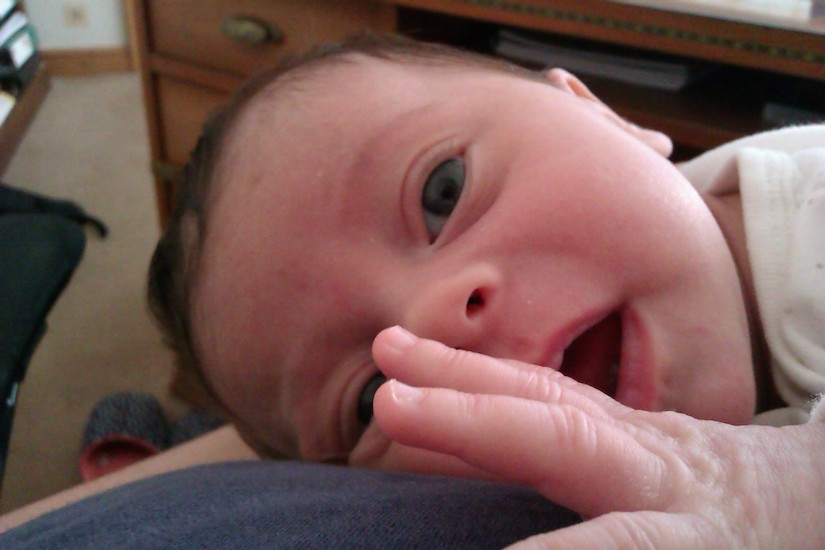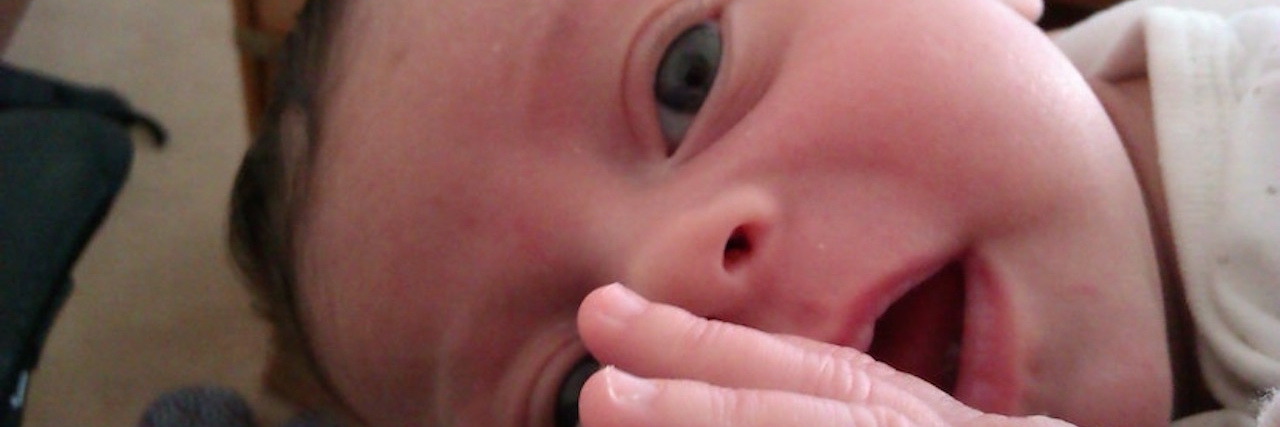I have a severely dysfunctional immune system; it’s genetically programmed to malfunction. In the past 10 years, it cost me my sight for two years, robbed me of the ability to walk for nearly a year and has landed me in hospital and in the ICU more times than anyone should have to live through. My father also had a dysfunctional immune system. It cost him his life. He fought his illness for five years. I have been doing the same for the last 10.
Eight years ago, in an attempt to halt organ destruction, I began monthly treatments with intravenous chemotherapeutic agents. This failed to do anything for my health other than make me weaker, but it wreaked havoc on my fertility. My life was at stake, so no one was counting ovaries, but I noticed subtle differences from then on. When my health was more stable, I went to a gynecologist. He informed me I was in early menopause. I could have children, he said, only I’d need to take medications for ovarian induction, medications I couldn’t take because of my immune system, and then use a surrogate. I thought about it and decided against it. Fertility treatments, as life-altering as they may be for some people, were not for me.
In the middle of all this, I had been having a fling. We were always very careful and pregnancy, children and any sort of a future were not part of the equation for us. That
is, until my period was a couple of weeks late, my appetite turned voracious and I was nauseous all day without my usual immune mediated hemolysis! I got a pregnancy test. It was positive.
Due to the predominantly genetic nature of my conditions, I had to grapple with a myriad of practical and ethical issues immediately. I am to my very core, anti-abortion. Please don’t get me wrong. I don’t mean to imply that I judge anyone who exercises their legal choice to terminate a pregnancy or that I think doing so is somehow inherently wrong or unethical. It’s just not a choice I’ve ever been comfortable with for myself.
Yet after my first appointment with an army of medical specialists meant to help the baby and me get through the pregnancy in the best possible shape, I found myself in a deep state of despair. My anticonvulsants put the baby at higher risk for neural tube defects like spina bifida or anencephaly. My immune system put her at risk for heart block in utero, which meant she could have needed a pacemaker shortly after birth. My genes also meant there is a 15 to 20 percent chance of her having a similarly defective immune system. My propensity for clots translated to a higher risk of premature birth, HELLP syndrome or intrauterine demise.
Making decisions has always been my forte, but this time I was stumped. I only had my ethical compass as a guide, and I’ll be the first to admit that is deeply flawed and subjective at best. Throughout all this, one question haunted me. What if the baby had the same immune defects I have, that my father had? What if I had to watch my child suffer from a disorder like mine, a disease I wouldn’t wish on my worst enemy?
Emotionally I’m still trying to find an answer to that question that can offer some sort of comfort. In my darkest hours, I have at times wished I were dead. I have yearned for the emotional and physical pain to stop, for the physical deterioration to go away. I have cried for my lost health, for the life I had imagined and that will never be. I have lived through the depths of despair and come out the other side, and though I would hate for any loved one of mine to have to go through the same ordeal, I have come to the conclusion that I do not believe the possibility of despair and suffering and death and pain are reasons not to live. Or to put it slightly differently, in all the times I wished I were dead, I have never once wished I had never been born.
My daughter survived pregnancy. And childbirth. And for a split second after she was born, we thought she was a healthy baby. Slowly, ever so slowly, we’re realizing she’s a lot like me in every way. She’s strong, mischievous and kind. She’s also rare, medically fragile and oftentimes seriously ill. I don’t know what the future holds for her or me. The only thing I know is that today we’re both lovingly present in each other’s lives. Like everyone else, I can only hope about tomorrow, but the privilege of today is incredible in and of itself.

If you or someone you know needs help, please visit the National Suicide Prevention Lifeline. You can also reach the Crisis Text Line by texting “START” to 741-741. Head here for a list of crisis centers around the world.
The Crisis Text Line is looking for volunteers! If you’re interesting in becoming a Crisis Counselor, you can learn more information here.

